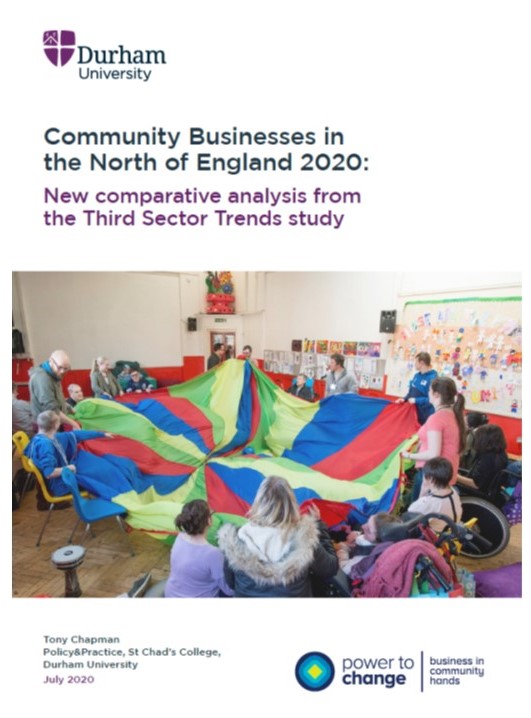When community business leaders completed their Third Sector Trends survey in 2019, there was a good deal of optimism in the air. That optimism must surely have been dented with the onset of the Covid-19 crisis and, undoubtedly, there will be casualties as the economy falls into severe recession.
We don’t yet know how quick ly the economy will recover or whether the economy will remain in the doldrums in the longer term. Ultimately, nobody will know for at least two years – at which point – Third Sector Trends will return to find out.
ly the economy will recover or whether the economy will remain in the doldrums in the longer term. Ultimately, nobody will know for at least two years – at which point – Third Sector Trends will return to find out.
Ailbhe McNabola, Head of Research and Policy at Power to Change, said: “This report shows that community businesses perform a unique balancing act, marrying enterprise and entrepreneurialism with a goal of making a real difference to places where they are based. These attributes will be important as places begin to recover from the social and economic impacts of the Covid pandemic. Community businesses can play an important role in the places where they work in the months and years ahead.”
As this report shows, it should not be taken as read that the future for all community businesses will be bleak. The pandemic may help to produce changes in the way communities think and act in future. Maybe local people will feel a stronger sense of commitment to community and to the organisations which champion and service it, such as community businesses?
In 2019, Power to Change supported the Third Sector Trends study across the North of England alongside the Community Foundation serving Tyne & Wear and Northumberland and Garfield Weston Foundation. Over three thousand organisations responded (of which over 650 worked as community businesses).
This report for Power to Change shows that community businesses are resilient entities which are financed at least in part through self-generated trading activity. And while community businesses cannot be said to be more committed to their communities than general charities, this report shows that community businesses usually have more capacity to deliver support because they are larger organisations.
When compared with other charities, community businesses also tend to be more ambitious to grow, are keener to engage with local policy makers and invest more energy in attending events and meetings to debate or decide upon policy and action to improve community life.
Resilience is underpinned by the agility and flexibility of community businesses to spread financial risks. Usually, as this research shows, they do this by engaging in more than one form of self-generated trading activity at a time.
For example, amongst organisations which are involved with retailing and hospitality activities, 67% also manage a community building and 43% offer other types of paid-for services.
Trading is crucially important to the financial wellbeing of community businesses, but few can keep going on the surpluses they produce from self-generated trading alone. Even in the best of times, most also rely on a variety of other sources of income such as contracts, grants, fundraising, subscriptions, investments, gifts and so on. Few community businesses choose to keep all their eggs in one basket.
Those community businesses that face an immediate cash-flow crisis due to Covid-19 will be feeling pretty vulnerable just now. And for those who are almost wholly reliant on trading to sustain themselves it may be hard for them to see a viable future.
There is so much uncertainty ahead. Temporary measures such as emergency loans, grants, rent holidays and furloughing are welcome – but these are only stop-gap measures for community businesses. But one thing is abundantly clear from this report – funding bodies must not assume that community businesses can be left to their own devices in the longer term just because they trade.
Community businesses in the North of England 2020: new comparative analysis from the Third Sector Trends Study, by Tony Chapman, Bristol: Power to Change. The report and full blog can be downloaded here: https://www.powertochange.org.uk/research/prospects-community-businesses-north-england/
